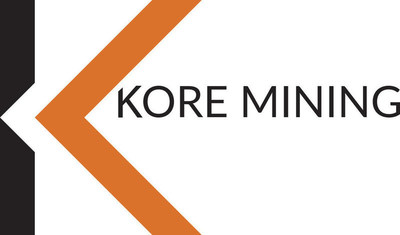KORE MINING COMPLETES SECOND PHASE OF ENGINEERING AND MARKET ASSESSMENT OF IMPERIAL SALTON SEA MATERIALS
KORE Mining Ltd. (KOREF) announced the results of a second phase of engineering for excess materials from its Imperial Oxide Gold Deposit in California. This initiative, known as ACES, aims to supply materials for the remediation of the Salton Sea. The study indicates that these materials have a significant competitive edge socially, economically, and environmentally. The Imperial project could support various local remediation projects while generating jobs and taxes. The engineering studies commenced in March 2021, highlighting the limited local resource availability for such initiatives.
- Potentially significant competitive advantage of Imperial's excess materials for Salton Sea remediation.
- Growing stakeholder support for the ACES initiative, indicating positive community and investor engagement.
- Expected creation of local jobs and tax revenue from the project.
- None.
ACES Excess Waste Materials Have Competitive Advantage in Salton Sea Remediation
VANCOUVER, BC, May 5, 2022 /PRNewswire/ - KORE Mining Ltd. (TSXV: KORE) (OTCQX: KOREF) ("KORE" or the "Company") is pleased to announce the results from a second phase of engineering and market assessment work for excess material from the Company's
ACES proposes to supply materials to remediate the Salton Sea, a major local health problem:
- Saving lives of local stakeholders through reduced respiratory illness from dust pollution;
- Preserving wetlands to benefit migratory birds suffering from increased Salton Sea salinity;
- Restoring local community waterfronts to enhance quality of life; and
- Rehabilitating playas to restore hundreds of thousands of acres of desert habitat.
KORE announced growing stakeholder support for ACES in the news release dated April 5, 2022.
KORE's CEO Scott Trebilcock stated: "Cleaning up the environmental catastrophe that is the Salton Sea, will take tens of millions of tons of clean construction materials. KORE's ACES initiative – A Clean Environment for the Salton Sea – aims to supply clean, low environmental impact materials to these critical cleanup projects. KORE's recent work demonstrates that the Imperial material has a competitive advantage, most notably from a social and environmental perspective. All other material sources would leave a massive scar in the landscape – not at Imperial, where the gold mine effectively pays for site backfill and remediation."
In March of 2021 KORE commissioned a speciality consulting firm, Crystal Waters Consulting, LLC to conduct a market study for sale of excess mine material from the Imperial project. The Imperial project has the advantage of having clean, river deposited sand and gravel conglomerate overlying the gold deposit. This material has the potential to serve as a variety of construction materials. The study demonstrated that there was a small local market for the materials, but the largest need was for Salton Sea remediation projects. A follow-on study to dive deeper into the market for Salton Sea construction materials and to assess the capital and operating costs for processing and transporting Imperial excess materials was commissioned by the same firm in November of 2021.
The result of the study demonstrated that the Imperial excess overburden or ACES materials could potentially be competitive socially, economically and environmentally. Land-use in Imperial and Riverside Counties are highly restricted with farms, nature preserves, military reserves and infrastructure greatly reducing the possible locations to source large quantities of suitable construction materials. Further layering of geology, shows that many of the open areas do not have the right types of materials suitable for the reclamation projects at the Salton Sea. The result is that Imperial's ACES material is one of the few potential sources of large quantities of appropriate cover and construction materials such as rip-rap, integral to berms specified in many Salton Sea remediation projects. The strongest competitive advantage would be for projects in the southern Salton Sea, where a majority of the toxic playas are forecasted.
It is further anticipated that ACES materials have the added social benefit of bringing taxes and jobs from the associated gold mine. The gold mine pays for
KORE owns
The Mesquite-Imperial-Picacho District centers on KORE's Imperial project. Imperial is a structurally controlled intermediate sulfidation epithermal gold deposit. The
Imperial has a mineral resource estimate and a positive preliminary economic assessment effective April 6, 2020 with the following highlights:
- Robust economics: US
$ 343 million NPV5% post-tax with44% IRR at US$ 1,450 per ounce gold - Low capital intensity project with only US
$ 143 million pre-production capital cost - Average 146,000 ounces gold per year over 8 years for 1.2 million ounces total production
- Technically simple project: shallow open pit, run-of-mine heap leach with existing infrastructure
- Value enhancement through Mesquite-Imperial-Picacho District exploration and resource expansion
The Company's NI 43-101 compliant resource and preliminary economic assessment is titled "Preliminary Economic Assessment – Technical Report Imperial Gold Project" effective as of April 6, 2020 and revised and amended on June 10, 2021, prepared by Terre Lane and Todd Harvey of Global Resource Engineering and Glen Cole of SRK Consulting (Canada) Inc. can be found under the Company's profile on SEDAR (www.sedar.com) and on the Company's website.
KORE Mining is focused on responsibly creating value from its portfolio of gold assets in California, USA. The Company is advancing the Imperial project towards development while continuing to explore across both district-scale gold assets. Management and Board, along with strategic investor, Eric Sprott (
On behalf of KORE Mining Ltd
"Scott Trebilcock"
Chief Executive Officer
(888) 407-5450
Investor Relations
David Jan, Investor Relations
(888) 407-5450
info@koremining.com
Technical information with respect to the District and Imperial Gold Project contained in this news release has been reviewed and approved by Marc Leduc, P.Eng., who is KORE's COO and is the qualified person under National Instrument 43-101 responsible for the technical matters of this news release.
Neither the TSX Venture Exchange nor its Regulation Services Provider (as that term is defined in the policies of the TSX Venture Exchange) accepts responsibility for the adequacy or accuracy of this release.
This news release contains forward-looking statements relating to the future operations of the Company and other statements that are not historical facts. Forward-looking statements are often identified by terms such as "will", "may", "should", "anticipate", "expects", "intends", "indicates" and similar expressions. All statements other than statements of historical fact, included in this release, including, without limitation, statements regarding the future plans and objectives of the Company are forward-looking statements.
Forward‐looking statements in this news release include, but are not limited to, statements with respect to: the strategy, competitive advantages, timing and implementation the ACES initiative, the actual results advantages, and impact of the ACES initiative, and advancing the existing Imperial gold deposit toward feasibility and mine permitting; the timing of submitting Environmental Assessment report(s) for one or more areas of the Imperial project; potential actions, behavior or position of the BLM; the underexplored and prospective nature of the Imperial Regional Exploration Drilling area; the results of the preliminary economic assessments for the Imperial Project, including future project opportunities, the projected NPV, permit timelines, the current mineral resource estimate, and the ability to obtain the requisite permits; the market and future price of and demand for gold; the opportunities of expansion at the Imperial Project; and the ability to work cooperatively with stakeholders, including all levels of government. Such forward‐looking statements, and any assumptions upon which they are based, are made in good faith and reflect our current judgment regarding the direction of our business. In connection with the forward‐looking information contained in this presentation, the Company has made numerous assumptions, including, among others: there being no significant change to current geotechnical, metallurgical, hydrological and other physical conditions at the Imperial Project; exploration, permitting, and development of the Imperial Project being consistent with current expectations and planning; the geological, permitting and economic advice that the Company has received is reliable and is based upon practices and methodologies which are consistent with industry standards; and other planning assumptions. While the Company considers these assumptions to be reasonable, these assumptions are inherently subject to significant uncertainties and contingencies.
Forward looking information involves known and unknown risks, uncertainties and other factors which may cause the actual results, performance or achievements of the Company to be materially different from any future results, performance or achievements expressed or implied by the forward‐looking information. Known risk factors include, among others: the outcome of BLM's review processes for permitting, including the final outcome(s) of BLM's mineral claim validity examination(s) and administrative review process(es) with respect to the Imperial Zone, including a change to the findings from the mineral claim validity examination conducted in 2002 for the mill sites at the Imperial Zone, resulting in the Company having to move its future Imperial Zone project support facilities to areas that are not within the Indian Pass mineral withdrawal area; the possibility that BLM may require and/or conduct further mineral claim validity examinations with respect to the Imperial project, and the outcome and final determination of such examination could, among other things, invalidate one or more mining claims; the possibility that BLM or other governmental authority review of the Regional Exploration Drilling program, delays or changes the Company's plan for Regional Exploration Drilling permitting, which could result, among other things, in delays, additional project requirements, additional costs and uncertainty of meeting anticipated program milestones; the exploration drill program may not be completed as planned; the need to obtain additional financing; uncertainty as to the availability and terms of future financing; the possibility of delay in exploration or development programs and uncertainty of meeting anticipated program milestones; uncertainty as to timely availability of permits and other government approvals.
Additional risks and uncertainties are described in the "Risks" sections of (i) the Company's Annual Information Form for the year ended December 31, 2021 prepared as of April 29, 2022, and (ii) the Company's Management's Discussion and Analysis for the year ended December 31, 2021, both available under the Company's issuer profile on www.sedar.com.
Forward-looking statements contained herein are made as of the date of this news release and the Company disclaims any obligation to update any forward-looking statements, whether as a result of new information, future events or results, except as may be required by applicable securities laws. There can be no assurance that forward-looking information will prove to be accurate, as actual results and future events could differ materially from those anticipated in such statements. Accordingly, readers should not place undue reliance on forward-looking information.
![]() View original content to download multimedia:https://www.prnewswire.com/news-releases/kore-mining-completes-second-phase-of-engineering-and-market-assessment-of-imperial-salton-sea-materials-301540724.html
View original content to download multimedia:https://www.prnewswire.com/news-releases/kore-mining-completes-second-phase-of-engineering-and-market-assessment-of-imperial-salton-sea-materials-301540724.html
SOURCE Kore Mining
FAQ
What is the ACES initiative by KORE Mining?
How does KORE Mining's Imperial project benefit Salton Sea remediation?
What were the results of the recent engineering assessments for KORE Mining?
When did KORE Mining start the engineering assessments for the Imperial project?








